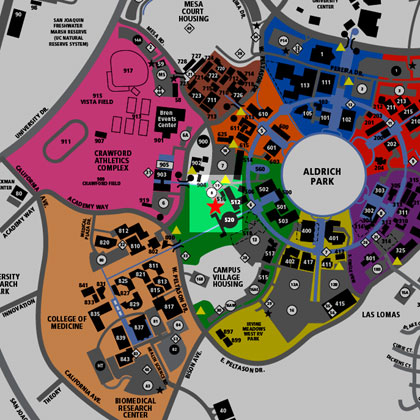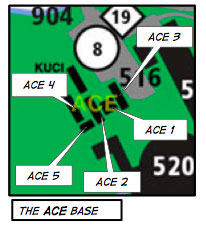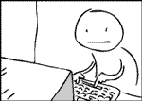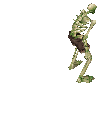About
This seminar engages computer game culture and technology from the context of humanistic, social science, and technology perspectives. We will explore such issues as the rise of computer game studies, historical approaches to the study of play and gaming, theories of play, analytical methods for analysis and critique of games, games and art, games and war, identity politics and games, and games and labor economies. Each week will involve intensive reading, discussion, and play.Required Materials
Readings and Games: Available online for your printing/playing pleasure (see weekly breakdown). You are expected to have the week's reading assignment with you during seminar (hard-copy or computer) for reference purposes.Course Overview
Expectations:- Readings. Readings form the foundation upon which our seminar conversations unfold. A basic collection of readings has been assembled. However, depending upon where discussions lead, we may find that we want to modify and/or supplement the basic list.
- Games. Games are a primary course material. Concentrated engagement is necessary in order to conduct sound critical analysis. So yes, there will be mandatory playtime.
- Weekly Presentations. Each week either a single student or group of students will be responsible for presenting summaries of weekly readings to class. Assignments will be made at our first meeting.
- Agenda Items. Each student will bring at least three agenda items they wish to discuss to each class meeting. These items must have a reference to either: 1) a reading; or 2) a game assigned for study that week. Attendance and active discussion of agenda items constitute 30% of the final grade.
- Paper or Project. Each student will be expected to complete either: 1) a substantial scholarly paper in the game studies domain (min ~3,500-5,000 words with ~5 scholarly references); or 2) a substantial media project in this area (e.g., a game informed by theoretical work in game studies, a documentary film about an aspect of game culture, a game design document, etc.). Projects must also be written up in a short (min ~1,500-1,800 words), reflective paper. The paper or project constitutes 50% of the final grade.
- Paper/Project presentation. At least one of our seminar meetings will be set aside for student presentations of their work (depending upon seminar size). Each presentation will be ~10 minutes long and include prepared materials (conference-style, with slides and/or other media support) followed by brief discussion. The presentation constitutes 20% of the final grade.
Week 1
Introductions- Discussion of seminar topics, syllabus, student interests, etc.
- Game previews.
Week 2
Theme: Game Studies?(Session Leaders: David, Thomas)
Read:
- "A Moment in the Life of a Generation," by Frans Mayra, from Games and Culture, Sage Publications, Vol 1, No 1, January 2006.
- "A Ludicrous Discipline?," by Tom Boellstorff, from Games and Culture, Sage Publications, Vol 1, No 1, January 2006.
- "Why Game Studies Now?," by Dmitri Williams, from Games and Culture, Sage Publications, Vol 1, No 1, January 2006.
- "Why Study New Games?," by Fred Turner, from Games and Culture, Sage Publications, Vol 1, No 1, January 2006.
Week 3
Theme: History(Session Leaders: Joel, Johnson)
Read:
- "Nature and Significance of Play as a Cultural Phenomenon," from Homo Ludens: A Study of the Play Element in Culture, Johan Huizinga, 1938 (as reprinted in The Game Design Reader, edited by Katie Salen and Eric Zimmerman).
- "The Definition of Play, the Classification of Games," from Man, Play, and Games, Roger Caillois, 1958 (also as in The Game Design Reader).
Week 4
Theme: Critique / Methods(Session Leaders: Thomas, Victor)
Read:
- "The Game, The Player, The World," by Jesper Juul, from Level Up, DIGRA, Utrecht, 2003.
- "Comparative Video Game Criticism," by Ian Bogost, from Games and Culture, Sage Publications, Vol 1, No 1, January 2006.
- "Videogames and Ideological Frames," by Ian Bogost, from Popular Communication, Vol 4 No 3, 2006.
- "Ludology Meets Narratology," by Gonzalo Frasca, from Parnasso #3, Helsinki, 1999.
- "New Media as Material Constraint: An Introduction to Platform Studies," by Ian Bogost, Nick Montfort, from HASTAC proceedings, Duke University 2006.
Week 5
Theme: Game Art(Session Leaders: Sean, Eric)
Read:
- "Winside Out: An Introduction to the Convergence of Computers, Games, and Art," by Antoinette LaFarge, catalog essay from Shift-Ctrl: Computers, Games, and Art, 2000.
- "SHIFT-CTRL," by Antoinette LaFarge and Robert Nideffer, Leonardo, Vol. 35, No. 1, pp. 5-13, 2002.
- "Cracking the Maze: Game Plug-ins and Patches as Hacker Art," by Anne Marie Schleiner Online Exhibition, 1999.
- "Shift-Ctrl: Computers, Games, and Art," curated by Robert Nideffer and Antoinette LaFarge, Beall Center for Art & Technology, UC Irvine, October-November 2000.
- "Alt-Ctrl: Computers, Games, and Art," curated by Robert Nideffer and Antoinette LaFarge, Beall Center for Art & Technology, UC Irvine, October-November 2004.
Week 6
Theme: War(Session Leaders: Jessica, David, Johnson)
Read:
- "From Sun Tzu to X-Box," by Ed Halter, from Thunder's Mouth Press, New York 2006.
- "Theaters of War: The Military Entertainment Complex," by Tim Lenoir and Henry Lowood, to appear in Kunstkammer Laboratorium, Jan Lazardzig, Helmar Schramm, Ludger Schwarte, eds., Walter de Gruyter Publishers 2003.
- "Spacewar: Fanatic Life and Symbolic Death Among the Computer Bums," Stewart Brand, 1972.
- "Tower Defense," from Wikipedia (Thomas)
- Spacewar! (Win Version), Martin Graetz, Stephen Russell, and Wayne Wiitanen (1962). Best to play with a partner. This version was programmed primarily by Peter Hirschberg (http://www.digisys.net/users/cogs/spacewar.htm) in C++ - here's the source code if you want to hack at it.
- Online Version, z o r g . o r g, 1995-2010
- Freeciv!, Peter Joachim Unold, Claus Leth Gregersen, and Allan Ove Kjeldbjerg (Original Authors), (1996-2010). (Johnson)
- TowerDefense.net, TowerDefense.net, 2009 (Thomas)
- Starcraft II, Blizzard Entertainment, Forthcoming (Joel)
Week 7
Theme: Identity Politics(Session Leaders: Eric, Joey, Jessica)
Read:
- "Genderizing HCI," by Justine Cassell, from Human Factors And Ergonomics, ACM 2002.
- "Complete Freedom of Movement: Videogames as Gendered Play Spaces," by Henry Jenkins, from The Game Design Reader Katie Salen and Eric Zimmerman (eds), 2003.
- "Not a Hater, Just Keepin' It Real," by David J. Leonard, from Games and Culture, Sage Publications, Vol 1, No 1, January 2006.
Week 8
Theme: Labor Economies(Session Leaders: Joey, Sean)
Read:
- "Parlaying Value," by Thomas Malaby, from Games and Culture, Sage Publications, Vol 1, No 2, April 2006.
- "The Labor of Fun," by Nick Yee, from Games and Culture, Sage Publications, Vol 1, No 1, January 2006.
- "On Virtual Economies," by Edward Castronova, from Game Studies, Vol 3, No 2, December 2003.
- "Ragnarok Online," from Wikipedia (Joey)
- "Farmville," from Wikipedia (Joel)
- FarmVille, zynga, 2009 (Joel)
Week 9
Theme: Case Study - WoW(Session Leaders: Joel, Victor)
Read:
- "Building an MMO With Mass Appeal," by Nicolas Ducheneaut (et al), from Games and Culture, special issue on World of Warcraft. Vol 1 No 4 (2006).
- "Does WoW Change Everything?," by T. L. Taylor, from Games and Culture, special issue on World of Warcraft. Vol 1 No 4 (2006).
- "Blood Scythes, Festivals, Quests, and Backstories," by Tanya Krzywinska, from Games and Culture, special issue on World of Warcraft. Vol 1 No 4 (2006).
- "WoW Is the New MUD," by Torill Elvira Mortensen, from Games and Culture, special issue on World of Warcraft. Vol 1 No 4 (2006).
- World of Warcraft, Robert Pardo, Allen Adham, et al, Blizzard Entertainment (2004). Use 10-day trial accounts to play (you can buy the game to continue). I will have it installed on my lab computers if needed. Play through at least level 10.
Week 10
Presentations: Final ClassAll papers/projects due.



